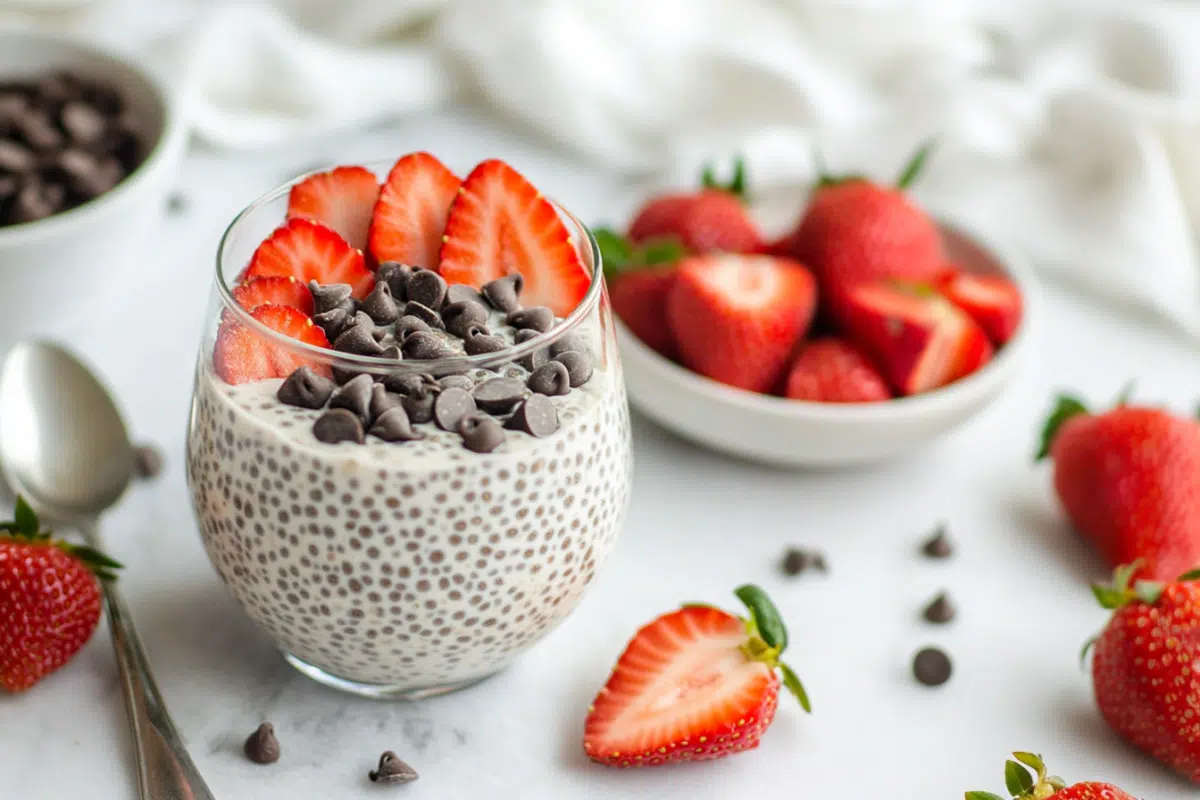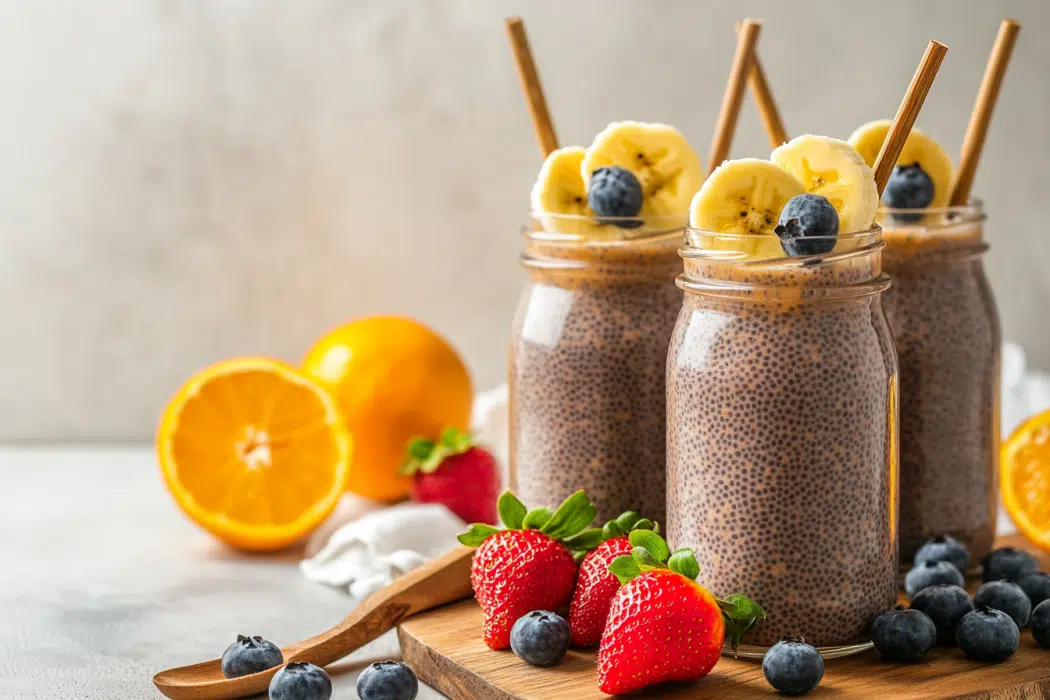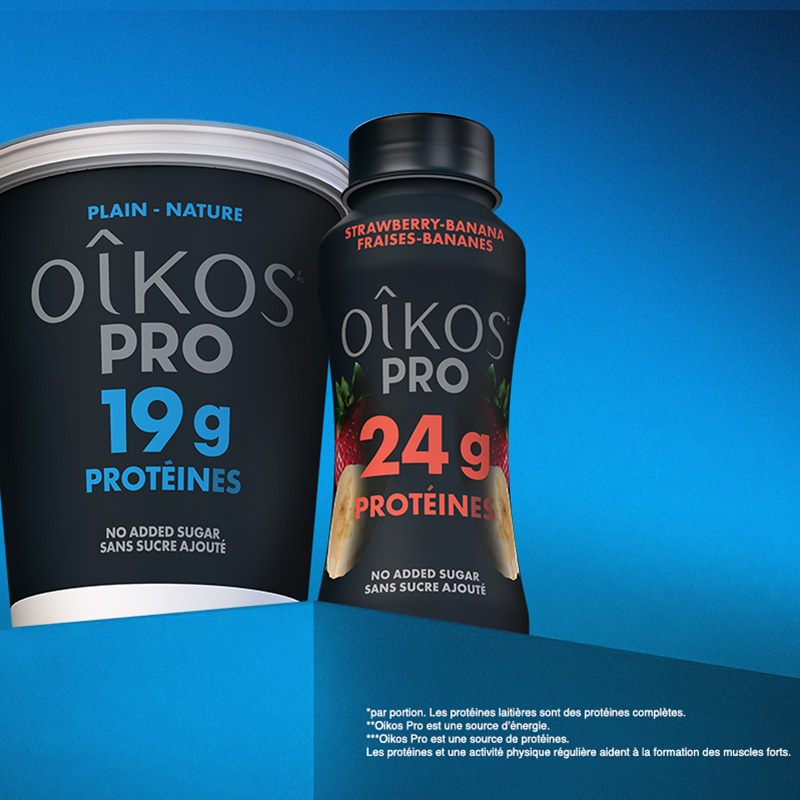

Le yogourt à teneur élevée en protéines officiel de la LNH
La force, ça se travaille. Avec un peu (ou beaucoup) de sueur, de la persévérance et une bonne nutrition pour te soutenir, tout devient possible.
Le NOUVEAU yogourt grec Oikos Pro, c’est jusqu’à 24g de protéines complètes* pour carburer** et nourrir ta force***. Peu importe où tu es dans ton parcours, chaque cuillerée te rapproche de tes objectifs!
Alimente ta journée avec le nouveau yogourt grec Oikos Pro—disponible en versions nature, vanille et saveurs fruitées—tes papilles vont adorer.
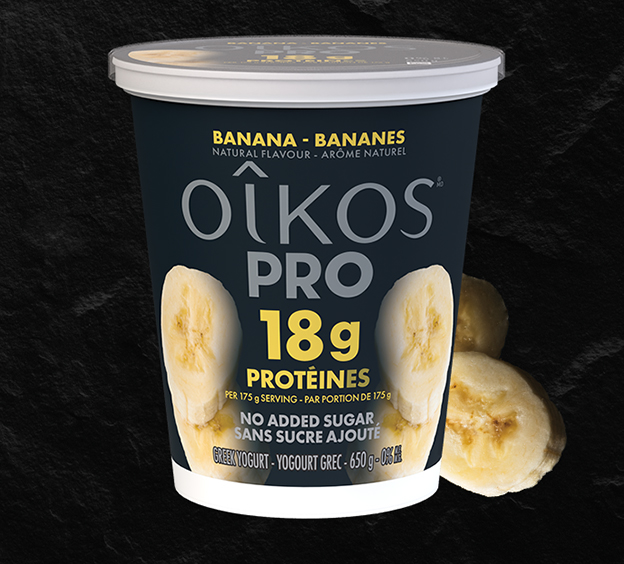
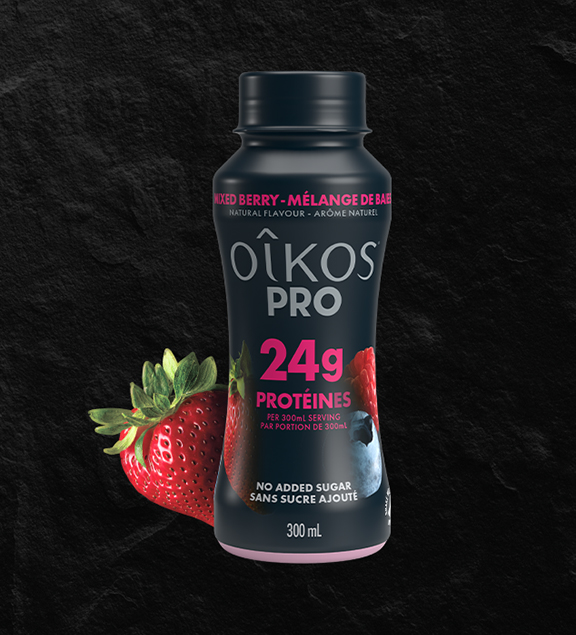
La gamme Oikos Pro, c’est jusqu’à 24 g de protéines laitières* complètes par portion pour t’aider à réparer tes muscles**, et du calcium pour contribuer à la santé de tes os***. Sans sucre ajouté, c’est la collation parfaite pour nourrir ta force****.
*Les protéines laitières sont des protéines complètes
**Oikos Pro est une source de protéines. Les protéines aident à la formation et à la réparation des tissus de l’organisme.
***Le calcium favorise la formation et le maintien de bons os et des dents saines. ****Oikos Pro est une source de protéines. Les protéines et l’activité physique régulière aident à la formation de muscles forts.










Besoin d’idées de collations, de déjeuners? Suis Oikos Pro si tu pousses pour nourrir ta force.
Notre yogourt a un goût sensationnel à chaque bouchée. Qu’il soit nature, aux mûres ou aux fraises, Oikos Yogourt grec a une teneur élevée en protéine, ce qui en fait le partenaire idéal pour une collation d’avant-midi ou pour concocter des recettes époustouflantes. Et quand vient le temps de réinventer le yogourt grec, on aime prendre le temps de bien faire les choses. 2 500 ans pour être précis.
Le yogourt grec Oikos est l’ingrédient secret de votre prochaine recette. Rehaussez n’importe quel plat avec sa texture crémeuse et son goût de rêve. Les repas en famille n’auront jamais été si savoureux.



